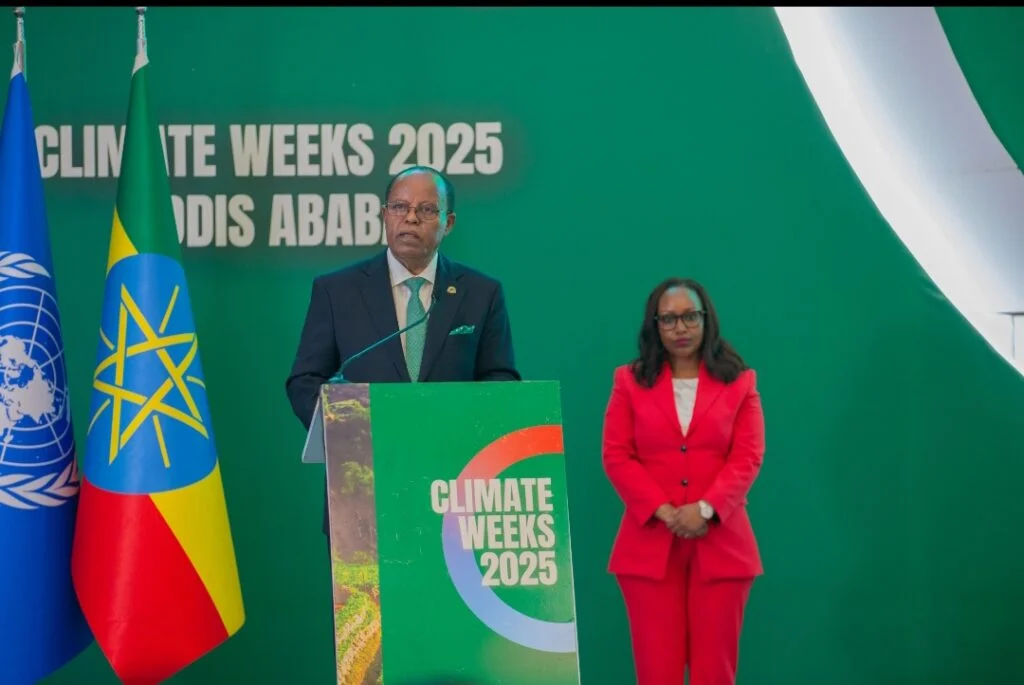African leaders gathered in Addis Ababa, Ethiopia, Today, September 8, 2025, for the second Africa Climate Summit, aiming to create a united plan to fight climate change.
The summit, held just before the COP30 global climate talks in Brazil, follows the U.S. withdrawal from the Paris Agreement, which has weakened global efforts to address the climate crisis.
A Vision for a Green Future
Ethiopian Prime Minister Abiy Ahmed opened the summit, saying, “We’re not here to fight for survival. We’re building the world’s next climate economy.”
He proposed an Africa-led climate innovation plan, funded by the continent, to bring together universities, startups, and communities to develop 1,000 climate solutions by 2030. Abiy also shared Ethiopia’s goal to host COP32 in 2027.
Africa, hit hard by floods, droughts, and landslides in 2025, wants to lead in green investments like carbon capture, renewable energy, and food production. “Africa can industrialize without harming its ecosystems if we act wisely,” Abiy said.
The Need for Fair Climate Funding
African nations, which contribute less than 4% of global greenhouse gas emissions, face severe climate impacts. Yet, they receive only 1% of global climate funding, according to summit officials.
At the first Africa Climate Summit in Nairobi in 2023, leaders sought more financial support, but funding remains limited due to debt and economic challenges.
Mahamoud Ali Youssouf, chair of the African Union Commission, stressed, “Climate funding must be fair and reliable.” Leaders called for reforms to global financial systems to support African countries in adapting to climate change and launching clean energy projects.
The U.S. exit from the Paris Agreement and clean energy partnerships, like those with South Africa, has raised concerns. Kenyan President William Ruto said, “Broken promises and lack of cooperation hurt our fight against climate change. We need stronger teamwork now.”
Africa’s Renewable Energy Potential
Africa holds 60% of the world’s best solar resources, thanks to its deserts and sunny climate, according to a July 2025 United Nations report.
Despite this, only 2% of global clean energy investments went to Africa in 2024. Leaders at the summit pledged to boost renewable energy to 300 gigawatts by 2030—enough to power a small country.
The International Renewable Energy Agency predicts 90% of Africa’s power could come from renewables, like solar, wind, and hydropower, by 2050.
South Africa, for example, is building a mix of solar, wind, and hydropower projects. Across the continent, solar panel imports from China jumped 60% to 15,032 megawatts in the past year, with 20 African countries setting import records, according to energy think tank Ember.
This growth, especially outside South Africa, shows rising demand for solar energy to meet the continent’s needs.
Looking Ahead to COP30
The summit will end with the Addis Ababa Declaration, setting Africa’s goals for COP30 in Brazil. Leaders aim to secure more funding, promote green industries, and highlight Africa as a hub for climate solutions.
Wanjira Mathai from the World Resources Institute said, “Africa can lead with homegrown solutions and drive global change if we get the support we need.”
As Africa faces growing climate challenges, the summit emphasizes unity, innovation, and fair funding to build a sustainable future.
Egypt Cuts Interest Rates by 200 Basis Points as Inflation Falls























